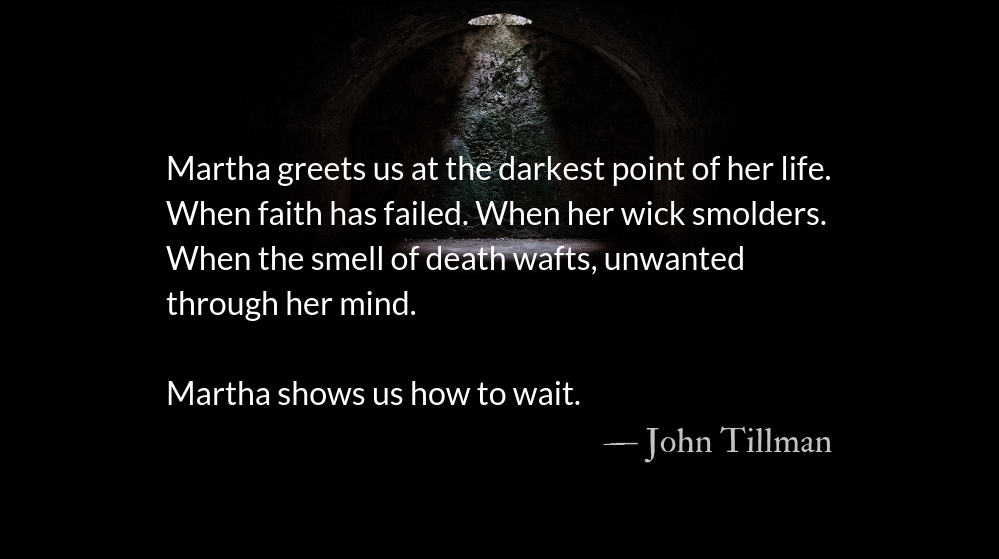Links for today’s readings:
Read: 1 Samuel 11 Listen: (2:43) Read: 2 Peter 3 Listen: (3:21)
Scripture Focus: 1 Samuel 11.2, 6
2 But Nahash the Ammonite replied, “I will make a treaty with you only on the condition that I gouge out the right eye of every one of you and so bring disgrace on all Israel.”
6 When Saul heard their words, the Spirit of God came powerfully upon him, and he burned with anger.9.14-18
Reflection: Confront the Spirit of Cruelty
By John Tillman
The city of Jabesh Gilead tried to make peace with Nahash the Ammonite. But cruelty made peace impossible.
They offered political, economic, and legal compromises—to pay tribute, surrender control, and be ruled by their opponent. But that wasn’t enough.
Perhaps Nahash disputed the border, feeling that he should have legal sovereignty over the area. Perhaps Nahash felt he was financially taken advantage of or deserved to gain an economic advantage in the region. If so, those claims were secondary. Nahash didn’t voice political or economic demands. He wanted to gouge out eyes. He wanted to cause shame, humiliation, and disgrace. Cruelty was the point.
When news reached Gibeah, they exhibited three biblically appropriate reactions to injustice and unacceptable cruelty—weeping, anger, and action.
First, weeping. Our hearts should be moved when others suffer cruelty, humiliation, and shame. Weeping includes crying out to God in prayer for justice. This is especially true when the victims are members of our community. However, Christ’s teaching does not define “neighbor” in geographical, political, ethnic, or familial terms. Christ charges us to act as neighbors, even across these borders and divisions.
Second, anger. Saul “burned with anger” after the Spirit “came powerfully upon him.” Injustice and cruelty should inspire Spirit-empowered (and controlled) anger. Expressing this anger, both in prayer to God and in critiques and challenges to fellow humans, is a vital part of seeking justice. When critiquing injustice we don’t need to “tone it down” so long as we are telling the truth and not being abusive, arrogant, or hypocritical. We want people to help stop injustice because they fear God, not because they fear us.
Third, action. Action takes risks. Saul not only took action himself, he demanded action from others. Saul defended those who were threatened and freed those held captive. He prevented shame, dishonor, and humiliation. There may be times we are powerless to stop oppressors. Even then, resistance is required. We cannot passively permit evil to easily overcome its victims. We must stand in its way, even if we fall before its advance.
One key to spotting injustice is the spirit of cruelty. This spirit spoils even the enforcement of good laws. Where cruelty rules, justice is absent and peace is impossible. Open your eyes to see injustice and be ready to weep, to burn with anger, and take action. Confront the spirit of cruelty wherever it occurs.
Divine Hours Prayer: The Morning Psalm
But as for me, this is my prayer to you, at the time you have set, O Lord:
In your great mercy, O God, answer me with your unfailing help.
Save me from the mire; do not let me sink; let me be rescued from those who hate me and out of the deep waters.
Let not the torrent of waters wash over me, neither let the deep swallow me up; do not let the Pit shut its mouth upon me.
Answer me, O Lord, for your love is kind; in your great compassion, turn to me. — Psalm 69.14-18
– Divine Hours prayers from The Divine Hours: Prayers for Summer
by Phyllis Tickle
Read more: Do Not Take Advantage
Doesn’t a meritocracy mean that winning proves I deserve it and you don’t? Doesn’t the survival of the fittest imply the elimination of the weak?
Read more: Vulnerable Quartet
The “quartet of the vulnerable” is a term for those vulnerable to harm, particularly in the Bible: the widow, the orphan, the immigrant, and the poor.



